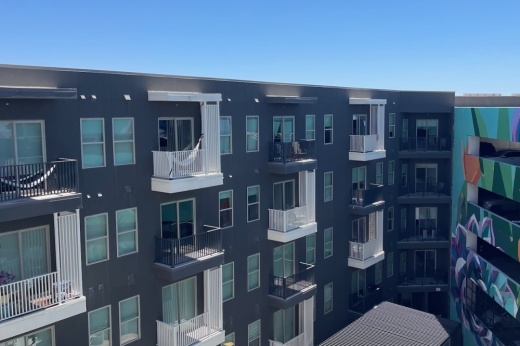Two-minute impact
In an attempt to combat housing insecurity in Austin, city officials in 2021 proposed a pilot program that'd distribute monthly checks to eligible families with no strings attached. It followed a similar rental assistance measure created during the pandemic.
The $1.14 million one-year pilot was formally outlined and approved by City Council in 2022 to support 135 low-income Austin households exiting homelessness, behind on rent or facing eviction.
The city partnered with nonprofit UpTogether on the 2022-23 pilot, which was also monitored by the Urban Institute, a Washington, D.C.-based research firm. Participants ended up using most of their payments on housing costs and said they felt more housing-secure after enrolling, with many making progress on rent or mortgage payments and lowering their risk of losing housing.
Analysts who followed Austin's program also reported the payments helped many participants stabilize their careers, education, social networking, nutrition and mental health.
Council already funded a new round of a city income project in this fiscal year's budget. On April 18, officials will vote on a new $1.34 million contract with UpTogether to launch a similar program for dozens of households.
The specifics
The new "family stabilization grant program," is aimed at several economic insecurities beyond just housing, although housing remains in focus.
If the contract is approved, the city expects 96 new households would start receiving $1,000 monthly checks over a one-year period. A city spokesperson said UpTogether would launch the program "as soon as possible" after council's potential April vote.
As with the previous pilot, eligible participants would be chosen in collaboration with local organizations.
"The city of Austin is not utilizing an open application process to enroll and select families. Instead, we will be utilizing the expertise and relationships of several community partners to enroll participants that meet the eligibility criteria," the spokesperson said.
New participants can't have been enrolled in the city's past income pilots, and those with dependents in their households could be prioritized.
Eligibility would also be based on:
- Earning below 80% of the local median family income, which is $122,300 for a four-person family; the 80% MFI limit is $93,450 for a family of four
- At least two of the following: residence within Austin's Eastern Crescent; missed housing or utility payments; displaced in the past two years; inability to afford child care; lack of access to affordable health care; children enrolled in lower-income Title 1 schools; and being unemployed, underemployed or not earning a living wage
After the one-year stabilization program, any further Austin income initiatives would require new funding and council approval.
Zooming out
The practice of offering unrestricted payments to residents through programs like Austin's caught on nationally over recent years, particularly amid the economic uncertainty of the pandemic. At least 30 such programs launched across the U.S. since 2020.
Officials in cities of all sizes have tried sending out similar monthly distributions. Research has shown varying levels of success at improving participants' financial stability and mental health.
The concept has also taken root in Texas. San Antonio ran an income program a few years ago, also with UpTogether. And in Harris County, officials are planning to send out $500 a month to nearly 2,000 Houston-area families over a year and a half. More than 82,000 low-income households applied.
However, that "Uplift Harris" project could be halted before the first checks are sent out—an outcome that could also affect Austin's plans.
Attorney General Ken Paxton is seeking to overturn the income program, which he described as an illegal and unconstitutional political scheme. Paxton detailed his arguments against county officials in an April 9 lawsuit.
“Taxpayer money must be spent lawfully and used to advance the public interest, not merely redistributed with no accountability or reasonable expectation of a general benefit," he said in a statement.
While that action is aimed specifically at Harris County, Paxton alleges local guaranteed income programs violate a provision in the Texas Constitution that bans both cities and counties from sending public money to individuals.
Paxton has not taken any action against Austin's program, and his office didn't respond to a request for comment about the city initiative as of press time.
In a statement, the Austin spokesperson said the city is "confident" its program will withstand any legal scrutiny under state law.
"As stewards of public dollars, we are always mindful of the Constitution’s prohibition against gifts of public funds. For that reason, our work on the program design, which spanned several years, includes specific applicant criteria, data gathering and performance measures to ensure compliance," they said in a statement. "We are committed to investing in our community in a way that promotes economic stability, leading to better outcomes, such as increased savings; food and housing security; and happy, healthy children ready to learn and thrive in school."





